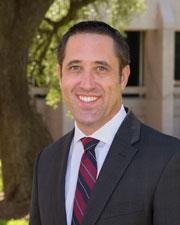Texas State Government and Long-Term ObligationsA Message From the Comptroller

Last December, I sent a letter to Governor Abbott and the legislative leadership outlining some long-term challenges to our state’s financial health — obligations that, in the absence of action, can only be expected to become more expensive, ultimately endangering our budget and our state’s credit rating.
Since legislators are grappling with preparing the budget for the next biennium, I thought it would be useful to provide more background on the issues highlighted in my December letter.
As a former legislator, I know only too well the difficulties that can come with the budget process, as lawmakers attempt to reconcile thousands of competing needs. The hot-button demands of the next two years always seem more important than issues that can be allowed to slide for “just one more session.”
Unfortunately, delaying action on some of our long-term obligations will only cost us more over time, much like compounding interest on a loan.
In this special report, we examine four of these obligations: state employee pension funding; the TRS-Care program, which provides health care coverage for retired public school employees and their dependents; the Texas Guaranteed Tuition Plan, a state-sponsored prepaid tuition plan; and our ever-growing backlog of deferred maintenance projects for state buildings.
These issues vary in scope, timing and severity, but they all represent obligations the state will have to address, sooner or later — and later will cost us a lot more. We discuss various existing proposals for coping with each of the long-term obligations individually, as well as the option of investing a portion of Treasury balances to raise revenue to address these issues.
I hope this report will provide some much-needed context on our long-term obligations and spur some consideration of them as budget negotiations continue.
As always, my office is ready to assist the Legislature with these and other important financial questions.
Glenn Hegar
Texas Comptroller of Public Accounts

